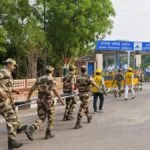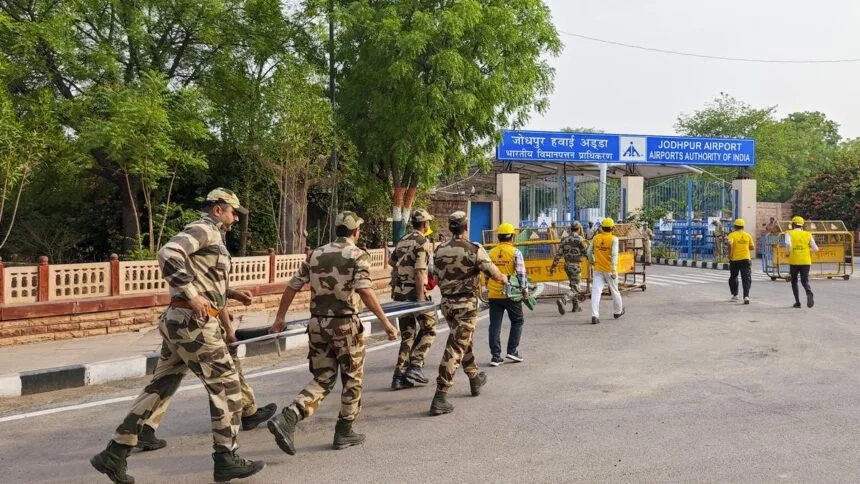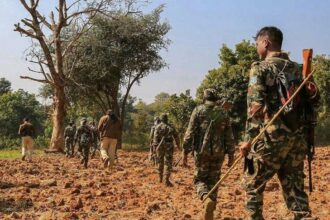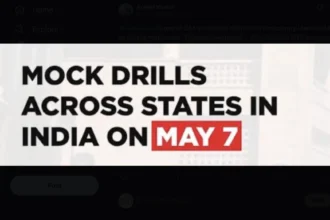Operation SHIELD mock drill postponed:
When the Sirens Go Silent: Operation SHIELD Mock Drills Put on Hold Across India’s Border States
It was supposed to be a day of simulated sirens, hurried footsteps, and coordinated chaos—an exercise designed to mimic the harsh realities of an aerial attack. But instead of blackouts and alert drills, silence settled over several Indian states on May 29, 2025, when the much-anticipated “Operation SHIELD” civil defense mock drills were abruptly postponed.
For days, the buzz had been building across border districts in Jammu & Kashmir, Gujarat, Rajasthan, Punjab, and Haryana. Local authorities were gearing up. Volunteers from the National Cadet Corps (NCC), Nehru Yuva Kendra Sangathan (NYKS), and Bharat Scouts & Guides had been briefed and ready to roll. Residents, too, had been alerted—told to expect blackouts, sirens, even drones. The idea was simple but crucial: simulate an enemy air raid and test how well people and systems would respond.
Then, just as the stage was set, came the message—brief, almost too clinical for its importance: “The Civil Defence Mock Exercise scheduled for May 29 stands postponed. No blackout or mock drill will be held tomorrow. Inconvenience is regretted.” That tweet from the Central Bureau of Communication, Chandigarh, rippled across newsrooms and district offices like a sudden change in wind before a storm that never comes.
For many, especially in border towns that sit just miles from potentially hostile territory, this drill wasn’t just another government exercise. It was a reassurance—a chance to test that, if the worst should happen, they wouldn’t be left fumbling in fear or confusion. It was a moment to feel heard, seen, and most importantly, prepared.
What Was Operation SHIELD? – Operation SHIELD mock drill postponed
The Ministry of Home Affairs had rolled out Operation SHIELD earlier this month as a comprehensive civil defense initiative aimed at boosting emergency preparedness in India’s western frontier. The name might sound dramatic—and maybe it is—but the purpose was anything but theatrical.
The plan involved large-scale simulations of air raids, missile attacks, and drone strikes. Think mock sirens, coordinated evacuations, blackout zones, and emergency shelter drills. It’s the kind of exercise that, while deeply unsettling to imagine, could one day save countless lives. The operation had already been conducted in select areas on May 7, with reports indicating strong participation from both government departments and local civil society groups.
The May 29 drill was supposed to be the next phase—bigger, more refined, and covering more ground.
So, Why the Operation SHIELD mock drill postponed ?
The official reason given was “administrative.” That’s often the government’s way of saying: “It’s complicated.” While no detailed explanation was provided, sources hint at logistical challenges and the difficulty of synchronizing efforts across five major states—each with its own political dynamics, security concerns, and on-ground realities.
A senior official from one of the involved districts (who preferred not to be named) told us, “It’s not that we weren’t ready. But there were gaps—timing issues, communication breakdowns. And let’s face it, you don’t want to run a mock drill this large unless you’re 100% sure every detail has been locked in. Otherwise, you’re doing more harm than good.”
There’s also speculation that with the rising temperature—literally and metaphorically—in certain parts of the country, the drill’s optics may have needed recalibration. “You’re asking people to voluntarily black out their homes and businesses for 15 minutes in the middle of an already tense summer. That’s not a small ask,” said a local shopkeeper from Gurdaspur, Punjab.
A Glimmer of Action: Haryana Steps Forward
Interestingly, not all states hit the pause button. Haryana announced it would go ahead with its part of Operation SHIELD. And true to its word, the state ran the full simulation across all 22 of its districts between 5 PM and 9 PM on May 29.
Emergency sirens blared, emergency shelters were activated, and at exactly 8 PM, selected areas experienced a controlled blackout. Critical services like hospitals and law enforcement remained untouched, but other parts of the cities dimmed their lights and practiced swift evacuation protocols. Local volunteers played the role of victims, while authorities ran triage exercises in makeshift relief centers.
Ramesh Kumar, a schoolteacher from Ambala who volunteered for the drill, described the experience as “eye-opening.” “You think you know what to do when danger hits—but when the siren goes off, you freeze. These drills matter. They shake you up in a good way.” – Operation SHIELD mock drill postponed
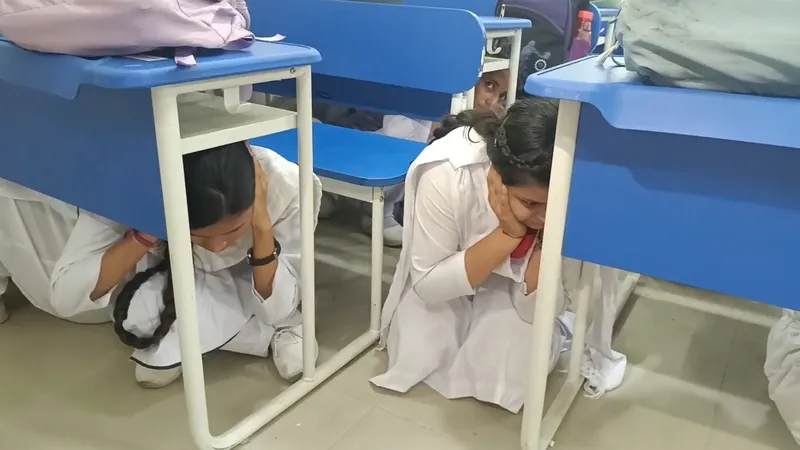
The Bigger Picture: Why Drills Like These Matter
In an increasingly volatile geopolitical climate, border states are on constant alert. The rise of drone warfare, cyber threats, and sudden escalation scenarios means that traditional military response isn’t enough anymore. Civil defense—once relegated to dusty old manuals and high school social studies textbooks—is suddenly relevant again.
It’s not just about air-raid sirens and bunkers anymore. It’s about how fast can an ambulance reach a blacked-out street. How quickly can a school be evacuated? Are the people in rural border villages getting the same updates as those in the cities? Do citizens know what to do if mobile networks fail?
“These drills are not just about strategy; they’re about psychology,” said Lt. Col. (Retd) Surinder Mehta, a civil defense trainer now working with NGOs in Punjab. “When people are mentally prepared, they panic less. That alone can save lives.”
Looking Ahead: What Comes Next? – Operation SHIELD mock drill postponed
Though new dates for the postponed drills haven’t been announced yet, the Ministry has confirmed that Operation SHIELD is far from shelved. If anything, the delay might allow for a better, more coordinated effort in the future.
Officials have hinted at the possibility of integrating newer technologies like satellite mapping, AI-based threat analysis, and real-time crowd tracking into the next phase. There are also talks of launching awareness campaigns in schools and colleges to build a culture of preparedness from the ground up.
As we await the rescheduling, the takeaway is clear: readiness isn’t a one-time act. It’s a mindset. And while the sirens may not have wailed this time, the need for preparedness has never rung louder.
For more updates like Operation SHIELD mock drill postponed and other exciting news, visit our website now!
Join GetRapidnews





